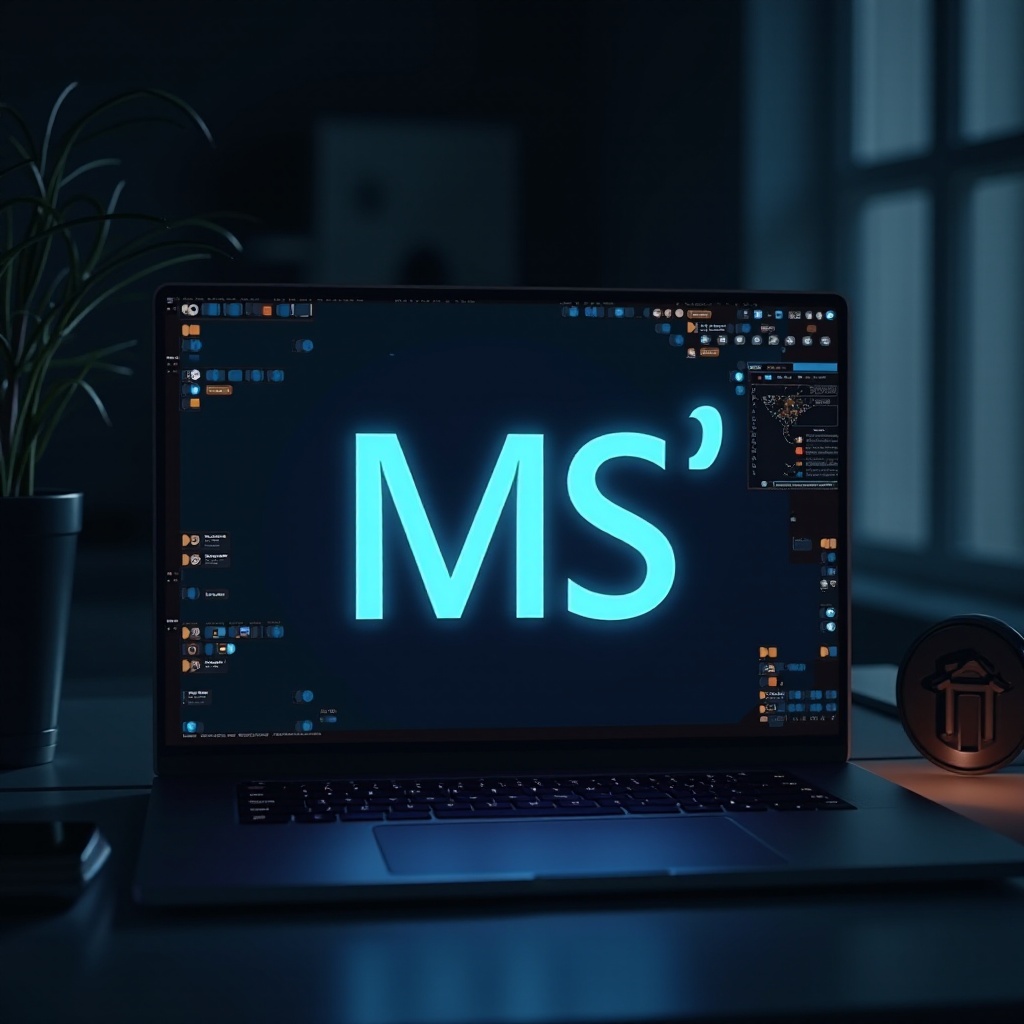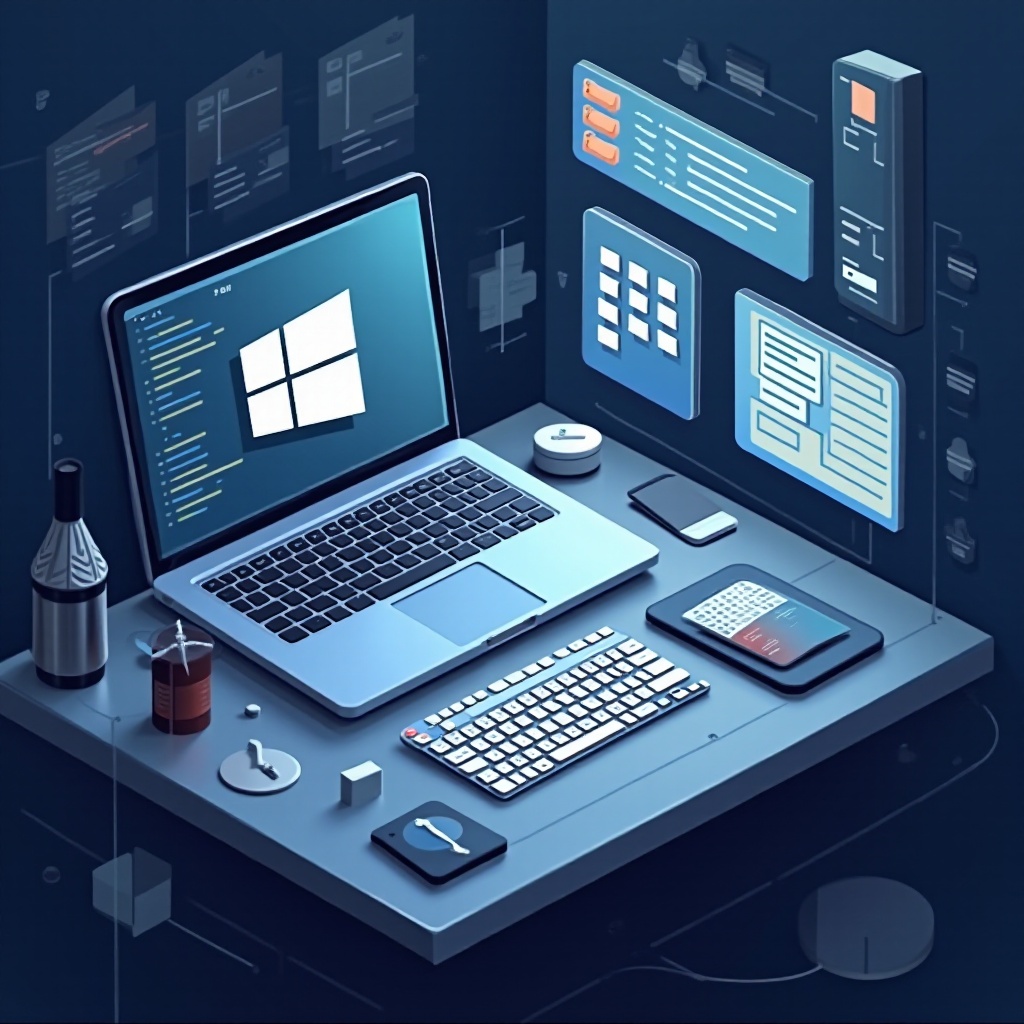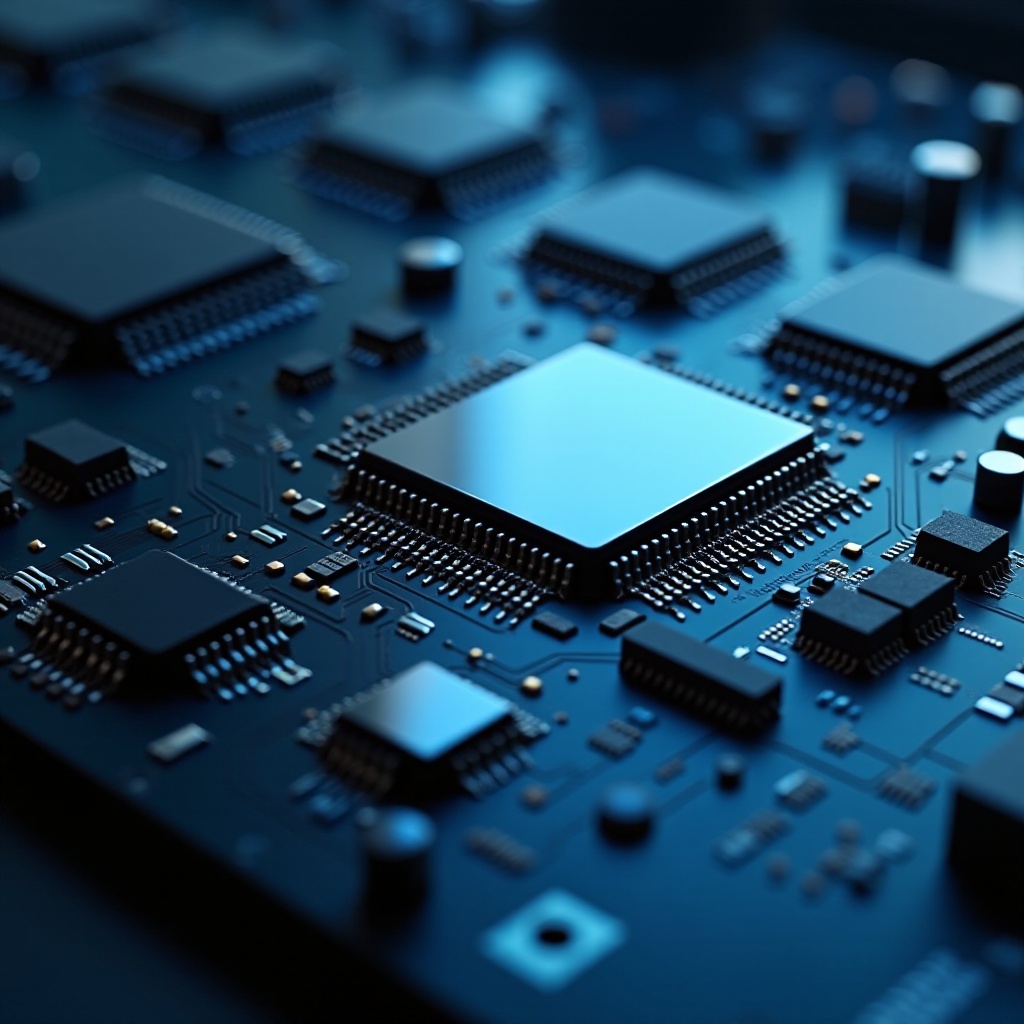Introduction
The abbreviation ‘MS’ is prevalent in the tech industry but can signify different things depending on its context. This article aims to uncover the various meanings of ‘MS’ in the realm of computing, from corporate titans to academic qualifications and beyond. We aim to clarify these interpretations, examining their individual and interconnected influences within the digital ecosystem.

Understanding ‘MS’ in Different Computing Contexts
The term ‘MS’ in computing encompasses more than just a single definition. While Microsoft often springs to mind, other significant associations exist in both academia and technology. Grasping these various contexts provides a clearer picture of its usage and its impact within the tech industry.
‘MS’ as Microsoft
Microsoft is a name synonymous with innovation in the computing world. Known globally, it has transformed personal computing through products like Windows and Microsoft Office. As a tech giant, Microsoft is a key player in driving innovation, affecting how software and hardware have evolved. This influence has led to significant shifts in business environments and consumer technology on a global scale.
‘MS’ in Academic Terms: Master’s Degree in Computer Science
In education, ‘MS’ typically refers to a Master’s degree in Computer Science. This postgraduate degree denotes a high level of proficiency and skill in computing essentials, preparing students for advanced roles in tech fields. Programs cover areas such as software engineering, data analytics, and cybersecurity. An MS in Computer Science significantly enhances career prospects by providing opportunities in numerous tech industries.
‘MS’ in Memory Systems
Memory systems represent another important facet of ‘MS’ in technology. These systems form the backbone of computing efficiency by determining how data is stored, accessed, and managed. As technology evolves, so do advancements in memory systems, which boost processing speeds and data reliability. Optimization of these systems is critical to improving the performance of both consumer electronics and enterprise solutions.

The Impact of Microsoft on Computing
Microsoft’s influence on computing is profound and extensive. This section delves into how Microsoft affects various sectors and connects to other definitions of ‘MS’.
Key Software and Platforms
Microsoft has created pivotal software solutions utilized by countless businesses and consumers. The Windows operating system sets the standard for compatibility across different devices, while the Microsoft Office suite remains integral for productivity tasks. Moreover, platforms like Azure show Microsoft’s commitment to cloud computing, which enhances business scalability and efficiency.
Microsoft’s Role in Business and Consumer Tech
Microsoft plays a vital role in reshaping business operations and enhancing consumer experiences. Through advancements in AI and machine learning, Microsoft promotes automation and insightful analytics. Products like the Xbox gaming console extend Microsoft’s influence beyond traditional computing into interactive entertainment and global connectivity, thus contributing to the development of digital lifestyles.
Microsoft’s Influence on Digital Education
The realm of education also witnesses significant contributions from Microsoft. Tools like Microsoft Teams and Office 365 have become essential in classrooms across the world, enabling remote learning and collaboration. Moreover, Microsoft’s educational certifications contribute to skills development, equipping individuals with essential capabilities for the digital future. These contributions underline Microsoft’s role in preparing a tech-ready workforce.
Pursuing an MS Degree in Computer Science
Obtaining an MS degree in Computer Science is a strategic step for those seeking specialized knowledge and increased career opportunities in technology. Understanding this degree’s link with ‘MS’ in computing provides a fuller appreciation of its benefits.
Overview of MS in Computer Science Programs
MS programs focus on providing a deep understanding of computing issues and equipping students with analytical skills to solve complex problems. Curriculum includes subjects like software development, machine learning, and algorithms. Combining theory with practical applications, these programs prepare graduates to meet the demands of a swiftly advancing tech industry.
Benefits and Career Opportunities
An MS in Computer Science offers significant advantages, such as higher earning potential and a broad range of career paths. Graduates may work in industries including software development, data science, and information security. Additionally, this degree opens doors to leadership positions, enabling graduates to oversee important technological initiatives and impact company strategies.
Comparing MS with Other Advanced Computing Degrees
Choosing between an MS and other advanced degrees requires understanding the focus of each program. While an MBA concentrates on business leadership, an MS prioritizes technical skill development. Deciding between them depends on personal career objectives, whether one aims for management or seeks to excel in specialized tech fields.
Memory Systems and Their Role in Modern Computing
Examining ‘MS’ within the sphere of memory systems highlights their essential role in modern computing operations. This understanding ties back to how ‘MS’ supports and enhances technological infrastructures.
Types of Memory Systems
Memory systems include primary, secondary, flash, and cache memory, each serving unique purposes within computer architecture. These components facilitate efficient data processing and storage, and innovations in this area improve overall system performance.
Importance of Effective Memory Management
Efficient memory management is crucial for optimizing computing tasks, impacting system speed and reliability. Proper resource allocation and retrieval ensure smooth operation across diverse applications and devices.
Innovations in Memory Systems Technology
Technological advancements, such as 3D stacking and quantum memory, push the boundaries of memory system capabilities. These innovations support complex computing tasks in data centers, AI, and beyond, expanding the possibilities of what current systems can achieve.

Moving Beyond Computing: Other Meanings of ‘MS’ in Technology
Exploring the broader meanings of ‘MS’ beyond computing showcases its widespread applicability within the tech sector. These applications underscore its adaptability across various fields.
Cross-Industry Applications of ‘MS’ Acronym
The ‘MS’ acronym appears in sectors like energy management and healthcare technologies, reflecting its versatility. Terms such as Magnetic Storage or Medical Software depict ‘MS’ usage in different contexts, demonstrating its multifaceted nature.
Case Studies of ‘MS’ in Broader Technological Fields
Real-world case studies illustrate how ‘MS’ integrates into diverse tech applications, underscoring its practical relevance and adaptability. These examples highlight ‘MS’ as a significant player within the broader technology landscape.
Conclusion
The term ‘MS’ encompasses various meanings within the computing domain, from renowned corporate influences to elevated educational credentials and essential system technologies. This exploration of ‘MS’ reveals a rich tapestry of contributions and interconnections that drive technological advancement and reshape the future.
Frequently Asked Questions
What are some common products developed by Microsoft?
Microsoft is renowned for products like Windows, Office, Azure, and Xbox, all serving vast consumer and business needs.
How does an MS degree in Computer Science differ from an MBA?
An MS focuses on technical skills in computing, whereas an MBA hones business leadership and managerial expertise.
What advancements are happening in memory systems today?
Innovations like 3D stacking and quantum memory enhance processing speeds and data handling, benefiting advanced computing tasks.
